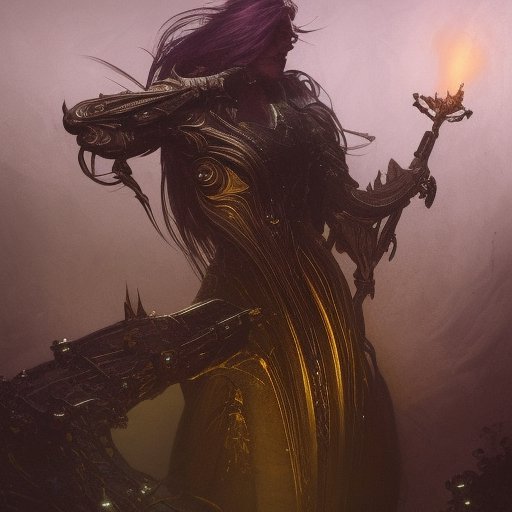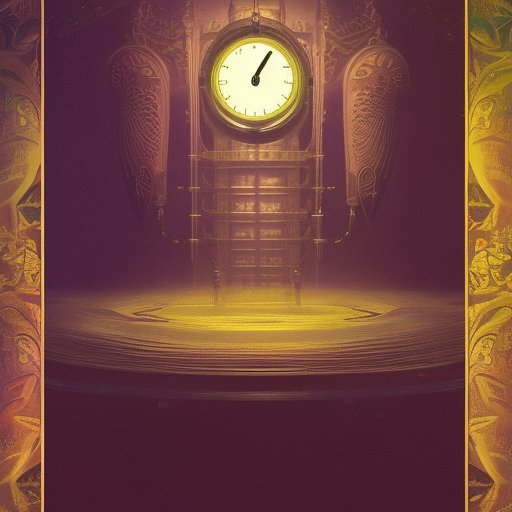
The cultural appropriation of hacker culture in movies and TV shows has gone too far. We need to take action now to stop it. This article will look at what hacker culture is and how it is presented in popular culture, the issues with cultural appropriation, what we can do to stop it, examples of cultural appropriation, and how popular culture is affecting hacker culture. Our future depends on us recognizing and respecting the boundaries of hacker culture and stopping the cultural appropriation now.
I. Introduction
The culture of hackers has been around since the dawn of technology, and it has been appropriated in movies and television shows for decades. But lately, it seems the appropriation of hacker culture has reached an all-time high, with movies and television shows depicting an unrealistic and often inaccurate version of the culture. This article seeks to address the issues surrounding the cultural appropriation of hacker culture, as well as what can be done to stop it.

The problem with this appropriation is multi-faceted, and it has real implications for those who are part of the hacker community. For example, when hacker culture is portrayed inaccurately, it can lead to misunderstandings and misinformation about how hackers actually operate. In addition, the glamorization of hacker culture in popular media can lead to an increase in cybercrime, as well as the furthering of negative stereotypes about hackers.
Furthermore, the cultural appropriation of hacker culture can lead to the neglect of important issues and topics within the community, such as cyber security and privacy, which are essential to protecting our digital lives. Finally, this appropriation can also lead to a lack of diversity and representation within the hacker community, as it can be seen as a “boys’ club” where only a certain type of person is welcomed.
In short, the cultural appropriation of hacker culture is a serious issue that needs to be addressed. This article seeks to explore the issues surrounding the appropriation, as well as what can be done to stop it.
II. What is Hacker Culture?
Hacker culture is a complex and ever-evolving set of values, beliefs, and norms that have been established over time by tech-savvy individuals. It is a community of individuals who are dedicated to exploring and understanding computer systems, networks, and programming languages. Hackers typically have a strong sense of curiosity and creativity, and they strive to understand and manipulate technology in an effort to advance their own knowledge and skills.

At its core, hacker culture is about pushing the boundaries of technology and pushing the limits of what can be done with it. Hackers have the ability to use technology to solve problems, create new things, and explore new ideas. They are also interested in finding creative ways to use technology to improve the lives of others.
Hacker culture is also a culture of collaboration and sharing. Hackers often work together to develop new technologies and techniques, and they often share their knowledge and expertise with one another. This culture of collaboration is what has allowed hackers to create some of the most revolutionary technologies and products of our time.
In addition, hacker culture is a culture of exploration and experimentation. Hackers often explore and experiment with new technologies and techniques, often in an effort to find new and innovative ways of using them. This culture of exploration and experimentation has led to some of the most groundbreaking advancements in computer science and technology.
Finally, hacker culture is a culture of openness and transparency. Hackers often share their work and knowledge openly and freely, and they are often willing to help others who are trying to learn more about technology and programming. This openness and transparency is what has allowed hackers to make significant breakthroughs in the world of technology.
III. How is Hacker Culture Viewed in Popular Culture?
Hacker culture is often depicted as glamorous and romanticized in popular culture. Movies like The Matrix, Swordfish, and Tron have perpetuated the idea that hackers are tech-savvy geniuses who can save the world with their tech wizardry. This portrayal is often not an accurate representation of the reality, as it often ignores the hard work and dedication that goes into the craft of hacking.

Furthermore, hackers are often portrayed as anti-social misfits who are out to do malicious deeds and break into computer systems. This portrayal is also not an accurate representation of the reality, as many hackers are simply passionate and curious individuals who are looking to innovate and explore the digital world.
Moreover, the media often portrays hackers as malicious criminals, which often leads to the demonization and criminalization of the hacker community. This is an issue as it can lead to a culture of fear and mistrust, which can be damaging to the hacker community and its progress.
In addition, the media often portrays hackers as white, male geeks, which is not reflective of the diversity of the hacker community. This is an issue as it ignores the contributions of female and minority hackers, who have been integral to the development of the hacker community.
IV. The Issues with Cultural Appropriation
The issues with cultural appropriation of hacker culture are far-reaching and can have serious implications for those who are part of the hacker community. For starters, when hacker culture is portrayed inaccurately, it can lead to misunderstandings and misinformation about how hackers actually operate. In addition, the glamorization of hacker culture in popular media can lead to an increase in cybercrime and the furthering of negative stereotypes about hackers.

Moreover, cultural appropriation can lead to the neglect of important topics within the hacker community, such as cyber security and privacy, which are essential to protecting our digital lives. Additionally, this appropriation can lead to a lack of diversity and representation within the hacker community, as it can be seen as a “boys’ club” where only a certain type of person is welcomed. This can be damaging to the hacker community, as it can lead to the exclusion of certain groups and individuals who could bring valuable perspectives and insight to the conversation.
Furthermore, cultural appropriation can lead to the commodification of hacker culture and the exploitation of the community’s resources. This can be seen in the appropriation of hacker culture for commercial purposes, such as in movies, television shows, and video games. This can lead to a disconnect between the hacker community and the popular culture that is appropriating the culture, as well as the potential for the hacker community to be misrepresented and misunderstood.
Finally, cultural appropriation can also lead to a lack of respect for the hacker community by those who are not part of the community. This can lead to a lack of understanding and appreciation for the hard work and dedication of the hacker community, as well as the potential for the community to be taken advantage of by those who do not understand or appreciate the culture.
V. What Can We Do to Stop Cultural Appropriation?
It’s clear that cultural appropriation of hacker culture is a serious issue that needs to be addressed. But what can be done to stop it? To start, it’s important to recognize that it’s not just about the media, but about the culture as a whole. We must strive to create a more inclusive and diverse hacker community, and ensure that the voices of all members are heard. Furthermore, we must also ensure that hacker culture is accurately portrayed in popular media.

We can do this by encouraging writers, directors, and producers to consult with members of the hacker community when making decisions about how to portray hacker culture. This will help ensure that the portrayal is accurate and respectful. Additionally, it’s important for those in the hacker community to speak out against cultural appropriation when they see it and to encourage others to do the same.
We must also work to create more positive representations of hacker culture in popular media. We can do this by showcasing the positive aspects of hacker culture, such as its passion for problem solving, its commitment to cyber security, and its dedication to innovation. By doing this, we can help create a more positive and accurate view of hacker culture that is not rooted in stereotypes or cultural appropriation.
Ultimately, it is up to us to take action and ensure that hacker culture is portrayed accurately and respectfully in popular media. By creating a more inclusive and diverse hacker community, encouraging accurate portrayals, and promoting positive representations of hacker culture, we can help stop the cultural appropriation of hacker culture once and for all.
VI. Examples of Cultural Appropriation
Examples of cultural appropriation of hacker culture can be seen all throughout popular culture, from movies to television shows. Take for example the movie “Hackers” from 1995, which portrays hackers as rebellious and often criminal individuals who use their knowledge of computers to break into systems and steal data. This movie paints a skewed picture of hacker culture and is far from the truth.

In the television show “Mr. Robot”, the lead character is a hacker who uses his skills to fight corporate corruption and fight for social justice. While this show does depict a more accurate version of hacker culture, it still falls short in its representation of the community.
The popular Netflix show “Black Mirror” also appropriates hacker culture, portraying it as a tool for crime and government surveillance. This portrayal perpetuates the negative stereotypes about hackers and does not accurately reflect the reality of the community.
Another example of cultural appropriation can be seen in the movie “Swordfish”, which portrays hackers as reckless, drug-using criminals who are willing to do anything for money. This movie paints a completely unrealistic picture of hacker culture and does nothing to accurately represent the real-life community.
It is clear that popular culture has a huge influence on how hacker culture is perceived. Sadly, this influence is often negative and does nothing to accurately represent the community. This is why it is so important for us to take action and stop the cultural appropriation of hacker culture in movies and television shows.
VII. Popular Culture’s Impact on Hacker Culture
Popular culture has had a significant impact on the hacker community and its perception in the mainstream. Movies and television shows have often portrayed hackers as genius-level masterminds, with an array of skills that make them seemingly unstoppable. This image of hackers has been further reinforced by the rise of cybersecurity and the use of hacker-like methods to protect networks.

However, this image of hackers as superhuman characters is far from the truth. In reality, hackers are people who work hard to learn the skills necessary to protect networks and data. They are not just people who are able to break into any system with ease.
Furthermore, the way hacker culture is portrayed in popular culture can lead to the glamorization of cybercrime. This can lead to an increase in criminal activity, as people seek to emulate the characters they see in movies and television shows. It can also lead to the furthering of negative stereotypes about hackers, as people may associate hackers with criminal behavior.
Moreover, the cultural appropriation of hacker culture can lead to a lack of diversity and representation within the community. As hacker culture is often portrayed as a “boys’ club” in popular culture, this can lead to the exclusion of women and other minority groups from the hacker community.
The effects of cultural appropriation on the hacker community are far-reaching and need to be addressed. From glamorizing cybercrime to promoting negative stereotypes, the cultural appropriation of hacker culture can have serious implications for the community. As such, it is important to take steps to stop the cultural appropriation of hacker culture in movies and television shows.
VIII. Conclusion
It is clear that cultural appropriation of hacker culture is an issue that needs to be addressed. This article has sought to explore the issues surrounding the appropriation and what can be done to stop it. From exploring what hacker culture is and how it is viewed in popular culture, to looking at examples of appropriation and the impact it has had on hacker culture, this article has offered a comprehensive overview of the problem.
Ultimately, it is up to us to take action to ensure that hacker culture is not appropriated or misrepresented in popular culture. We must take steps to ensure that hacker culture is accurate portrayed, as well as to promote diversity and representation within the community. Only then can we ensure that hacker culture is respected and protected.






